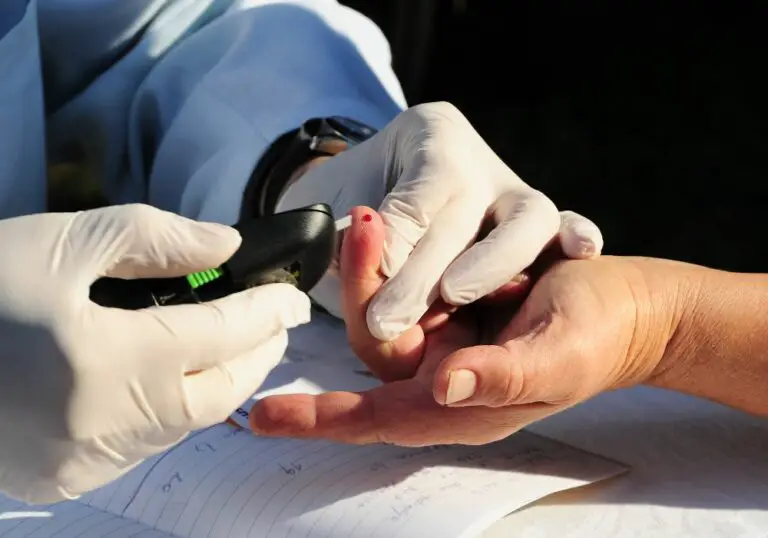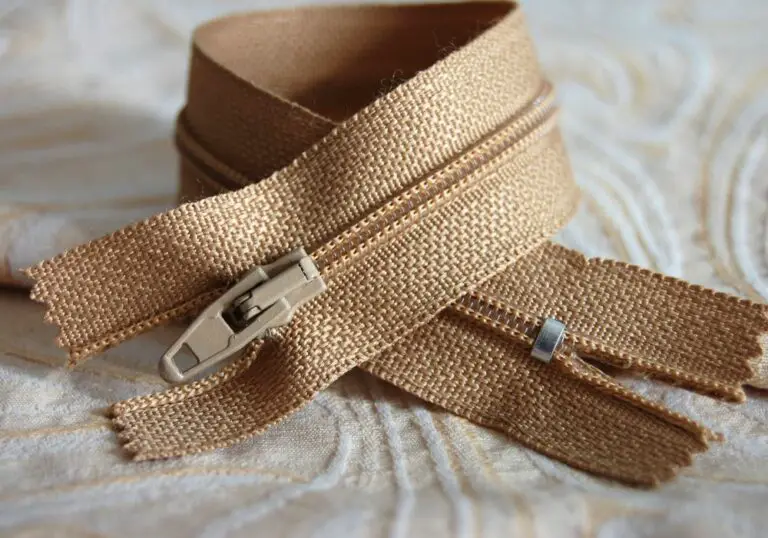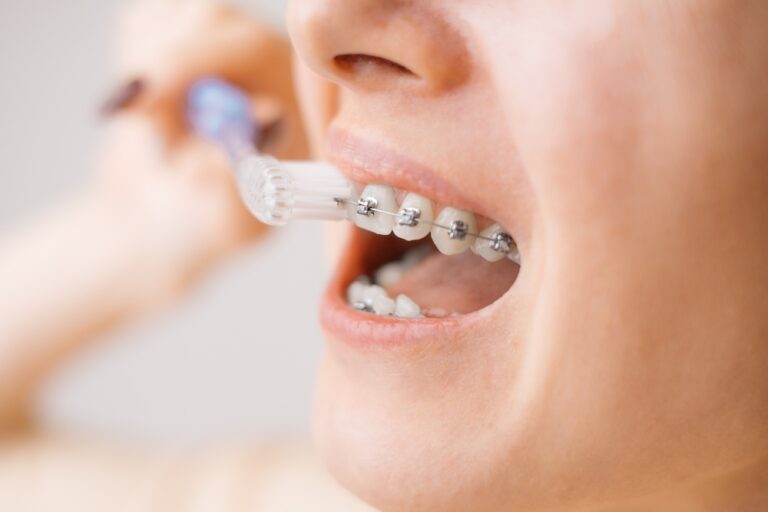Have you ever taken a sip of hot coffee or tea only to immediately regret it because of the pain it caused your teeth? You’re not alone. Many people experience discomfort when consuming hot or cold foods and drinks. But can the temperature of these items actually cause your teeth to crack?
According to dental research, the answer is yes. Thermal shock, or sudden and extreme temperature changes, can generate enough stress to crack dental enamel. This means that consuming food or drinks close to the boiling point, like scalding hot tea or soup, can easily induce a temperature spike of 60°F or more in teeth and are high risks for thermal shock damage. But what exactly happens to your teeth when they’re exposed to thermal shock, and how can you prevent this from happening?
In this article, we’ll explore the topic of thermal shock and its effects on teeth. We’ll delve into the science behind what happens to your teeth when exposed to extreme temperatures, common causes of thermal shock, and how to prevent damage to your teeth. Whether you’re a coffee lover or just looking to protect your dental health, understanding the risks of thermal shock and how to avoid them is essential.
Understanding Thermal Shock
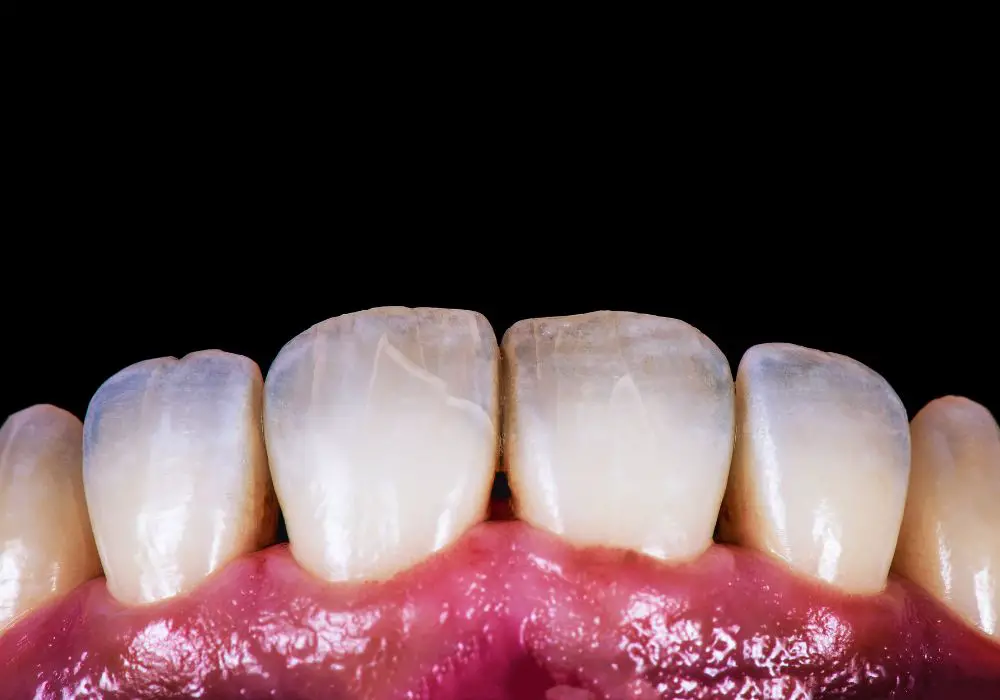
If you have ever experienced the pain of a toothache, you know how important it is to take care of your teeth. One way to protect your teeth is to understand thermal shock and how it can affect them.
Thermal shock is a phenomenon that occurs when an object is exposed to a rapid change in temperature. This can cause the object to expand or contract at different rates, leading to stress and strain that can result in cracking or breaking.
In the case of teeth, thermal shock can occur when you eat or drink something that is very hot or cold. This sudden change in temperature can cause the enamel on your teeth to expand or contract, leading to stress and possible cracking.
It’s important to note that not all teeth are created equal when it comes to thermal shock. Some teeth may be more susceptible to cracking than others, depending on factors such as their size, shape, and overall health.
To help prevent thermal shock from affecting your teeth, it’s important to take good care of them. This includes brushing and flossing regularly, avoiding foods and drinks that are too hot or cold, and visiting your dentist for regular checkups and cleanings.
By understanding thermal shock and taking steps to protect your teeth, you can help ensure that your smile stays healthy and strong for years to come.
Effects of Thermal Shock on Teeth
Exposure to extreme temperature changes can cause damage to teeth. Thermal shock is a phenomenon that occurs when teeth are exposed to sudden temperature changes, such as when biting into hot or cold foods. This can cause cracks to develop in the teeth, which can lead to further damage and tooth loss if left untreated.
When teeth are exposed to high temperatures, the enamel expands, and when they are exposed to cold temperatures, the enamel contracts. This expansion and contraction can cause stress on the tooth, leading to cracks or fractures. The severity of the damage depends on the duration and intensity of the temperature change.
Restored teeth are particularly susceptible to thermal shock due to the different materials used in the restoration process. The thermal expansion and contraction rates of the restoration materials may differ from those of the natural tooth, leading to stress and damage.
Studies have shown that even a small number of thermal cycles can cause crack initiation and propagation in intact teeth. The fatigue failure of restored teeth by cyclic thermal load is also a concern, as there is limited information available on this topic.
To prevent damage from thermal shock, it is recommended to avoid extreme temperature changes and to allow hot foods and beverages to cool before consuming. Additionally, using a mouthguard during sports activities can help protect teeth from sudden impacts that can cause thermal shock.
Regular dental check-ups are also important to detect and treat any cracks or damage to teeth caused by thermal shock. Early detection and treatment can prevent further damage and tooth loss.
Scientific Studies on Thermal Shock and Teeth
Thermal shock is a sudden change in temperature that can cause materials to crack or fracture. In the case of teeth, thermal shock can occur when you consume hot or cold food or drinks, and the temperature change causes the tooth to expand or contract rapidly, leading to cracks or fractures.
Several scientific studies have investigated the effects of thermal shock on teeth. One study conducted by Brown et al. found that less than 3,000 thermal cycles at temperatures between 32°C and 60°C caused crack initiation and propagation in intact teeth. Another study by Kruzic et al. showed that thermal cycling caused a significant reduction in the strength of teeth with existing cracks or restorations.
In addition to experimental studies, researchers have also used computer simulations to model the effects of thermal shock on teeth. For example, a two-dimensional finite element model designed by Zhang et al. gave a better insight into the stress fields in response to thermal or mechanical loadings developed in the oral cavity.
Furthermore, researchers have investigated the effects of thermal shock on specific dental materials, such as all-ceramic veneers. A study by Zhang et al. investigated the residual compressive behavior of all-ceramic veneers after being thermally shock cycled. The photomicrographs obtained revealed a different failure mechanism for the pristine and cycled teeth, indicating the susceptible nature of restored teeth to thermal shock.
Overall, these studies suggest that thermal shock can have significant effects on the strength and durability of teeth, especially those with existing cracks or restorations. It is important to be mindful of the temperature of the food and drinks you consume to avoid subjecting your teeth to unnecessary thermal shock.
Preventing Thermal Shock Damage
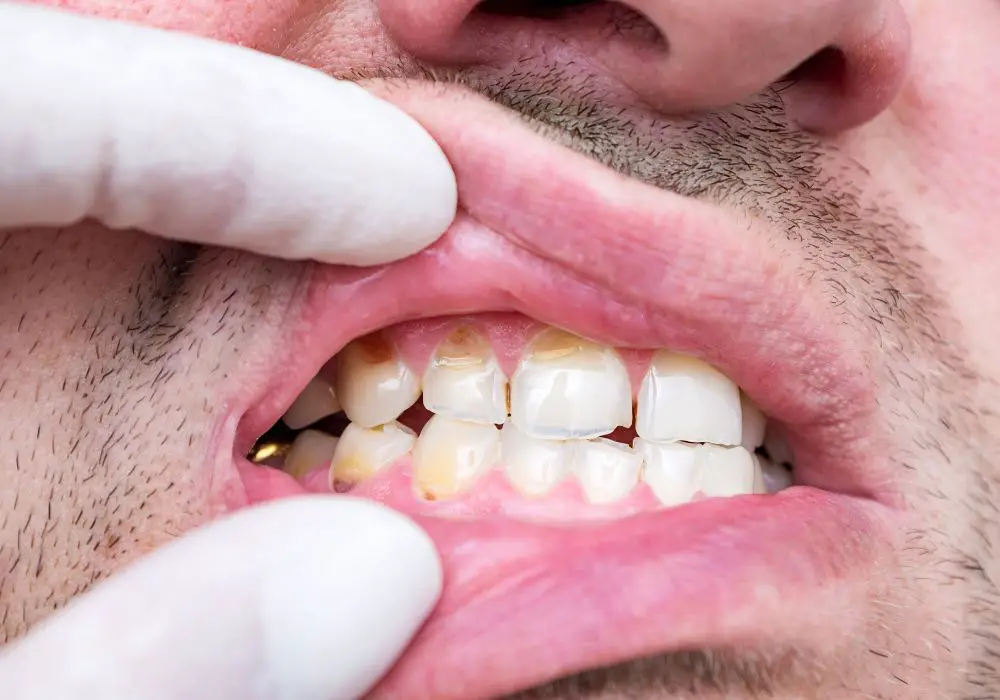
To prevent thermal shock damage to your teeth, there are a few things you can do:
1. Avoid Extreme Temperature Changes
Try to avoid consuming foods or drinks that are too hot or too cold, especially if they are extreme temperatures. Gradually changing the temperature of your food or drink can help minimize the risk of thermal shock.
2. Use a Straw
Using a straw to consume hot or cold drinks can help minimize the contact between your teeth and the extreme temperature. This can help reduce the risk of thermal shock.
3. Practice Good Oral Hygiene
Practicing good oral hygiene, such as brushing and flossing regularly, can help keep your teeth healthy and strong. Strong teeth are less likely to be damaged by thermal shock.
4. Wear a Mouthguard
If you participate in contact sports or activities that could result in a blow to the face, wearing a mouthguard can help protect your teeth from damage.
5. Visit Your Dentist Regularly
Regular dental check-ups can help identify any potential issues with your teeth, including damage from thermal shock. Your dentist can provide advice on how to prevent further damage and help repair any existing damage.
By following these tips, you can help prevent thermal shock damage to your teeth and maintain good oral health.
Treatment Options for Cracked Teeth
If you suspect that you have a cracked tooth, it is important to visit your dentist as soon as possible. Treatment options will vary depending on the severity and location of the crack.
Here are some common treatment options for cracked teeth:
Dental Bonding
Dental bonding is a procedure in which a tooth-colored resin material is applied to the surface of the tooth and hardened with a special light. This can be used to repair minor cracks in teeth.
Dental Crowns
Dental crowns are tooth-shaped caps that are placed over a damaged tooth to restore its shape, size, strength, and appearance. This is a common treatment option for more severe cracks that have caused significant damage to the tooth.
Root Canal
If a crack has reached the pulp (nerve) of the tooth, a root canal may be necessary. During a root canal, the damaged or infected pulp is removed and the inside of the tooth is cleaned and sealed.
Tooth Extraction
In some cases, a cracked tooth may be beyond repair and will need to be extracted. This is typically a last resort option and will only be recommended if there is no other way to save the tooth.
It is important to note that the best treatment option for your cracked tooth will depend on several factors, including the location and severity of the crack, as well as your overall dental health. Your dentist will be able to recommend the best course of action for your individual needs.
Importance of Regular Dental Check-ups
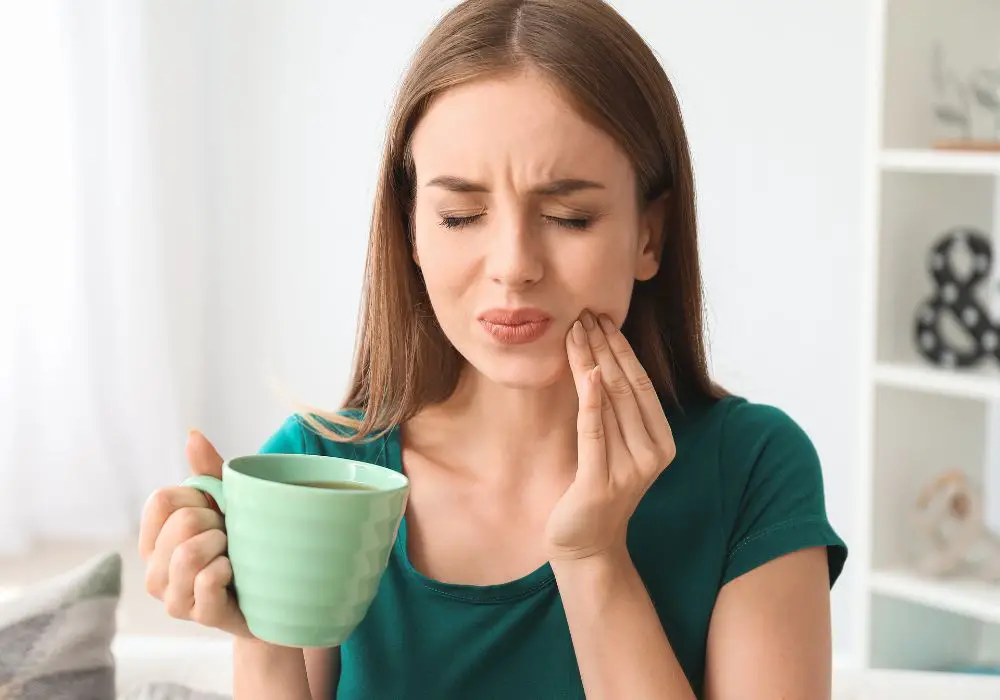
Regular dental check-ups are essential for maintaining good oral health. They help to prevent dental problems from developing or becoming worse. Here are some reasons why regular dental check-ups are important:
Early Detection of Dental Problems
During a dental check-up, your dentist can detect dental problems such as cavities, gum disease, and oral cancer. Early detection of these problems can help prevent them from becoming more serious and requiring more extensive treatment.
Preventive Care
Preventive care is the best way to maintain good oral health. Regular dental check-ups include professional teeth cleaning, which can help to remove plaque and tartar buildup that can lead to tooth decay and gum disease.
Monitoring of Oral Health
Your dentist will monitor your oral health during a regular dental check-up. They will check for any changes in your teeth, gums, and mouth that may indicate a problem. They may also take x-rays to check for any underlying dental problems that may not be visible to the naked eye.
Education on Oral Health
Your dentist can provide you with education on how to maintain good oral health. They can teach you about proper brushing and flossing techniques, as well as how to choose the right toothbrush and toothpaste. They can also provide you with information on diet and lifestyle choices that can affect your oral health.
Cost Savings
Regular dental check-ups can help you save money in the long run. By detecting dental problems early, you can avoid more extensive and costly dental treatments. Preventive care can also help you avoid the need for more expensive treatments such as root canals and dental implants.
Overall, regular dental check-ups are essential for maintaining good oral health. They can help to prevent dental problems from developing or becoming worse, and can save you money in the long run. Make sure to schedule regular dental check-ups with your dentist to keep your teeth and gums healthy.
Frequently Asked Questions
How can temperature changes affect teeth?
Temperature changes can have a significant impact on your teeth. When you eat or drink something hot or cold, it can cause your teeth to expand or contract quickly, which can lead to cracks in the enamel. Over time, these cracks can become larger and more serious, causing pain and sensitivity.
What is thermal shock and how does it impact dental health?
Thermal shock is a sudden change in temperature that can cause damage to your teeth. This can happen when you eat or drink something that is very hot or very cold. The rapid temperature change can cause your teeth to expand or contract quickly, which can lead to cracks in the enamel. Over time, these cracks can become larger and more serious, causing pain and sensitivity.
What are some common causes of cracked teeth?
There are many things that can cause a tooth to crack, including:
- Chewing on hard objects like ice or hard candy
- Grinding or clenching your teeth
- Trauma to the mouth, such as a fall or accident
- Large fillings that weaken the tooth structure
What are the signs and symptoms of a cracked tooth?
The signs and symptoms of a cracked tooth can vary depending on the severity of the crack. Some common signs and symptoms include:
- Pain when biting or chewing
- Sensitivity to hot or cold temperatures
- Swelling of the gums around the affected tooth
- Difficulty eating or drinking
How can cracked teeth be treated?
The treatment for a cracked tooth will depend on the severity of the crack. In some cases, a filling or crown may be sufficient to repair the damage. In more severe cases, a root canal or extraction may be necessary. Your dentist will be able to determine the best course of treatment for your individual situation.
What can be done to prevent cracked teeth?
There are several things you can do to help prevent cracked teeth, including:
- Avoid chewing on hard objects like ice or hard candy
- Wear a mouthguard if you grind or clench your teeth
- Practice good oral hygiene to keep your teeth healthy and strong
- Visit your dentist regularly for checkups and cleanings
By taking these steps, you can help protect your teeth from damage and keep them healthy for years to come.


